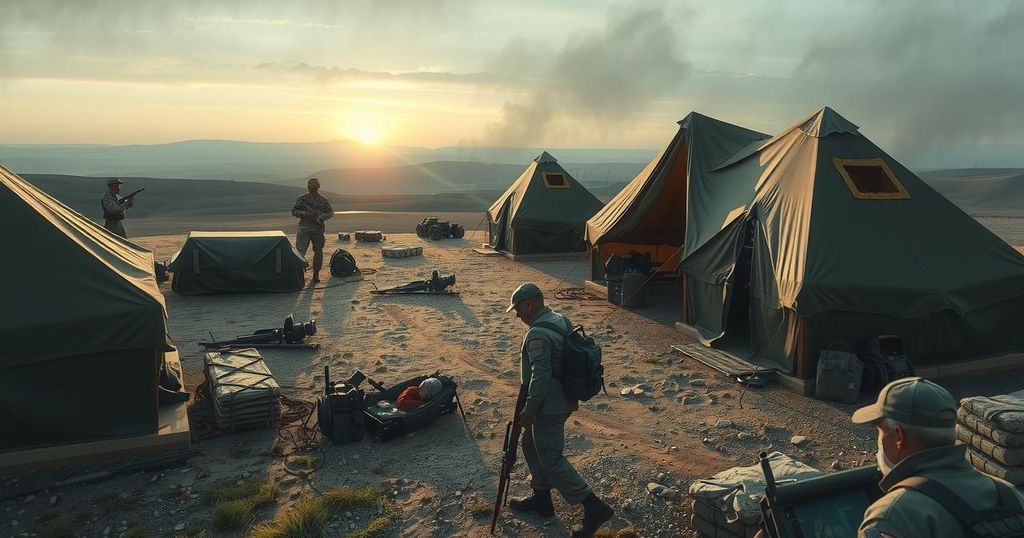Congo’s President Félix Tshisekedi urges massive military enlistment as the M23 rebels, backed by Rwanda, threaten eastern Congo, capturing Goma. The situation has escalated, prompting calls for ceasefire negotiations. The conflict, rooted in historic ethnic tensions and geopolitical interests, endangers regional stability.
In response to escalating violence from M23 rebels, whom the Congolese government claims are supported by Rwanda, President Félix Tshisekedi has called for a mass enlistment of young people into the military. The M23 rebels recently advanced into Goma, eastern Congo’s largest city, posing a significant threat to the region. Tshisekedi emphasized the need for a “vigorous and coordinated response” while expressing hope for a peaceful resolution.
The M23 rebels, backed by approximately 4,000 Rwandan troops according to United Nations reports, are part of over 100 armed groups fighting for control in eastern Congo, a region rich in valuable minerals. Tensions rise as the rebels have begun advancing towards Bukavu, creating panic among residents. The Congolese military is reportedly weakened due to the withdrawal of foreign military contractors, which has exacerbated the situation.
Amid these developments, a regional East African summit has called for ceasefire negotiations between the Congolese government and M23. Tshisekedi’s absence at the summit highlighted growing concerns over regional stability. Countries in the region have urged an immediate ceasefire as fears mount over a regional conflict, especially following remarks from South African President Cyril Ramaphosa concerning the South African peacekeepers’ role in the conflict.
The ongoing crisis is deeply rooted in ethnic tensions that date back to the 1994 Rwandan genocide, which left a significant legacy of violence and migration in the region. The M23 rebels assert that they are protecting ethnic Tutsis facing persecution in Congo, while Rwanda alleges that its interests are being ignored and its security threatened. Analysts suggest that failure to mediate effectively has led to the current escalation of hostilities.
If the M23 rebels succeed, they may attempt to establish a governance structure in eastern Congo, raising fears of a protracted conflict for control over its mineral wealth. Observers state that the current situation reflects a complex interplay of historical grievances, regional ambitions, and ongoing humanitarian crises that must be addressed urgently. The international community’s involvement will be crucial in seeking a peaceful resolution to this conflict.
The situation in eastern Congo has been compounded by long-standing ethnic divisions stemming from the Rwandan genocide in 1994. The M23 rebels have leveraged these divisions to gain support and justify their actions, presenting themselves as defenders of the Tutsi population against perceived threats. The geopolitical implications of this conflict extend to neighboring countries, particularly Rwanda, which has been accused of intervening militarily in support of the M23 rebels. This conflict not only poses a threat to regional peace but also affects the lives of millions displaced within Congo, necessitating urgent international attention and intervention.
In summary, the call for military mobilization by President Tshisekedi underscores the critical nature of the security situation in eastern Congo amidst the advancing M23 rebels. The involvement of Rwanda and the failure of regional diplomatic efforts highlight the complexity of the conflict. Immediate international intervention and effective mediation are essential to prevent further escalation and to seek a sustainable solution to the crisis.
Original Source: apnews.com




